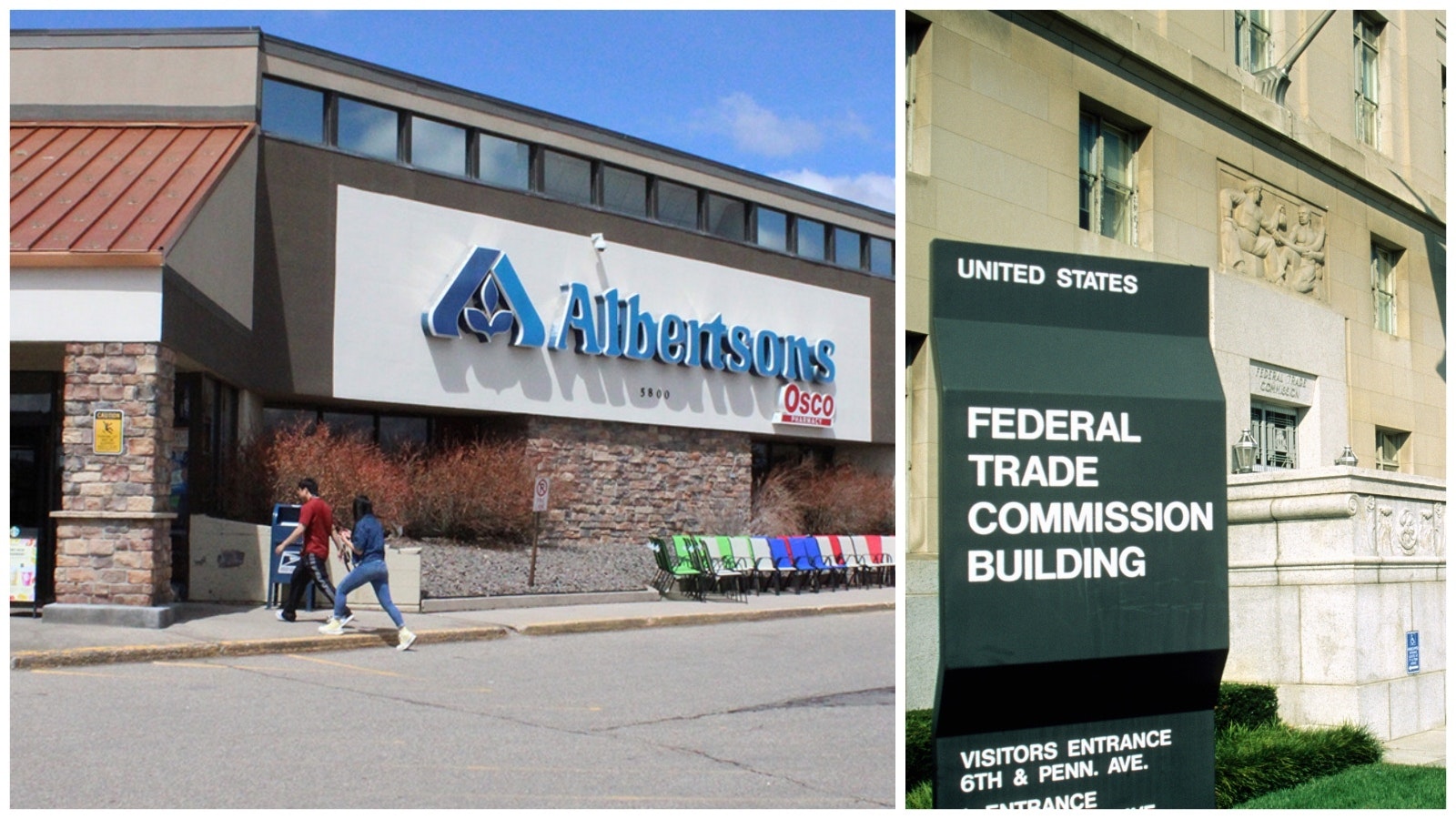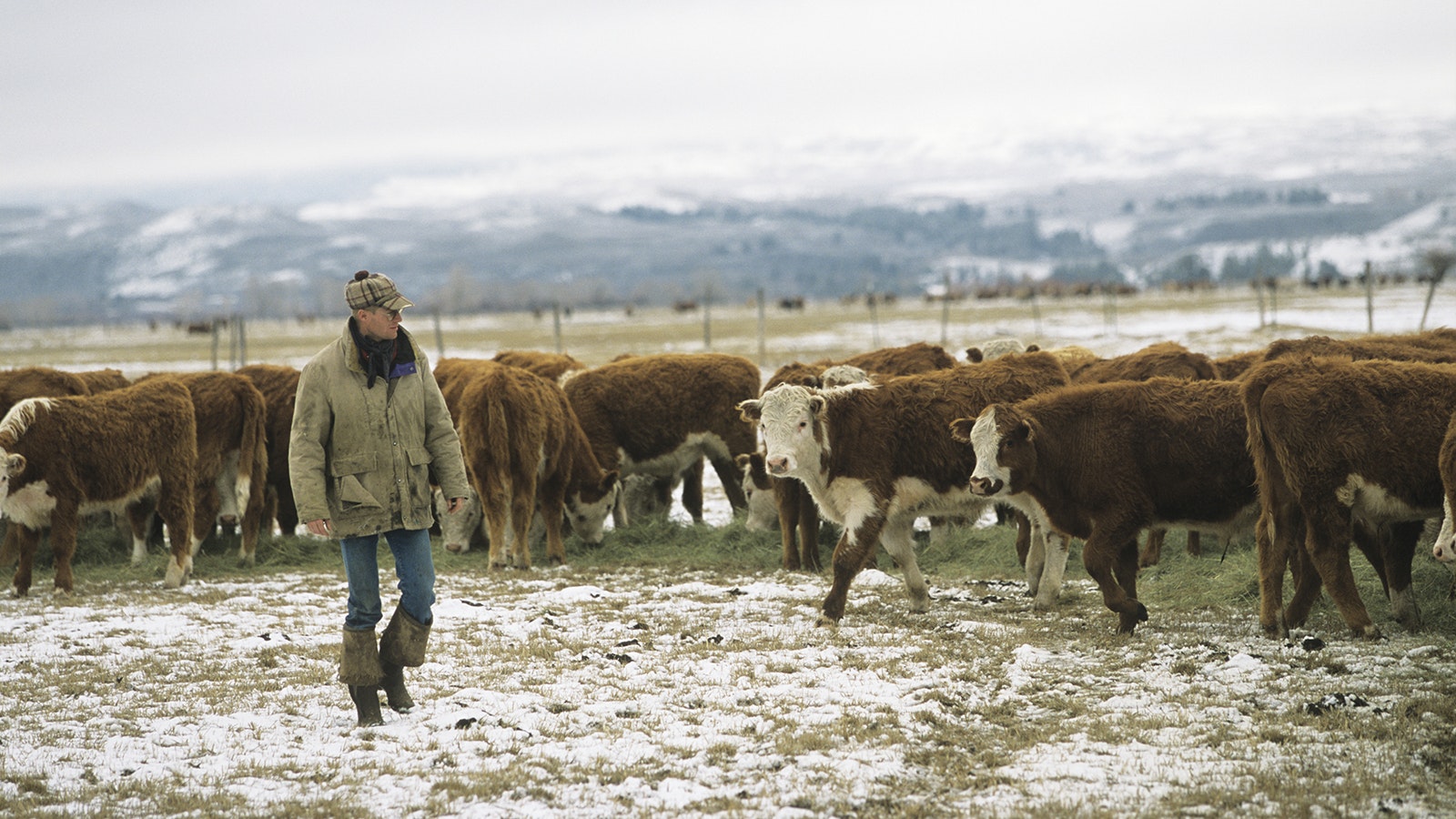Wyoming has joined nine states and the Federal Trade Commission in a lawsuit filed Monday to block a proposed $25 billion merger between Albertsons and Kroger.
The Wyoming Attorney General’s office was contacted by Cowboy State Daily about the legal challenge, but did not have a statement by the time this story was published.
The FTC, in filing its challenge, highlighted what it describes as an executive’s rather candid comment about the merger that “you are basically creating a monopoly in grocery with the merger.”
“This supermarket mega merger comes as American consumers have seen the cost of groceries rise steadily over the past few years,” Director of FTC Bureau of Competition Henry Liu said in a media statement. “Kroger’s acquisition of Albertsons would lead to additional grocery price hikes for everyday goods, further exacerbating the financial strain consumers across the country face today.
“Essential grocery store workers would also suffer under this deal, facing the threat of their wages dwindling, benefits diminishing and their working conditions deteriorating.”
Kroger and Albertsons have presented the merger as necessary to remain competitive with entities like Walmart and Amazon, both of which are so large they can dictate prices to suppliers,
To maintain competition, Kroger and Albertsons have said they would sell at least 413 stores to C&S Wholesale Grocers, a supply company that also owns some Piggly Wiggly stores. They have agreed to sell up to 650 stores to ensure the deal goes through.
But the FTC said a spinoff to C&S would do little to maintain true competition.
“Kroger and Albertsons’ inadequate divestiture proposal is a hodgepodge of unconnected stores, banners, brands and other assets that Kroger’s antitrust lawyers have cobbled together, and falls far short of mitigating the lost competition between Kroger and Albertsons,” the FTC said. “C&S would face significant obstacles sticking together the various parts and pieces from Kroger and Albertsons into a function business — let alone a successful competitor against a combined Kroger and Albertsons.”
The FTC lawsuit follows a series of suits filed against the Albert-Krogerson deal, including individual actions from the attorneys general of Washington and Colorado, and a shopper lawsuit filed in the Northern California District.
Companies Are Unhappy
Kroger and Albertsons both criticized the FTC action, saying that it would harm the very people the FTC says it is protecting with the suit.
“Kroger’s business model is to take costs out of the business and invest in lowering prices for customers,” Kroger said in a media statement. “Kroger has reduced prices every year since 2003, resulting in $5 billion invested to lower prices and a 5% reduction in gross margin over this period.”
Kroger, on a website about the merger, has said the company will invest $500 million into lower prices the day after the merger closes, and will invest $1.3 billion in improving Albertsons stores.
“This commitment builds on Kroger’s long track record of reducing prices every year, with $5 billion invested to lower prices since 2003,” Kroger said in its statement. “Kroger’s work to deliver better value to customers over the last 20 years has reduced its gross margins by 5%.
“In the same timeframe, competitors like Amazon, Ahold Delhaize, Walmart and Dollar General have increased their gross margins by 22%, 4%, 1% and 2% respectively.”
Kroger also touted its track record with former mergers, including with Harris Teeter and Roundy’s, investing $125 million and more than $100 million respectively to lower prices and improve stores.
Turning Profits
Kroger and Albertsons have also both reported substantial profits, gains that have come despite recent disinflationary trends, and despite steps Kroger has already begun to substantially increase wages, amid an inflationary period that has strained middle class pocket books.
Albertsons, in a statement emailed to Cowboy State Daily, said the merger would expand competition and lower prices, increasing associate wages and protecting wages, while enhancing the customer shopping experience.
“If the Federal Trade Commission is successful in blocking this merger, it would be hurting customers and helping strengthen larger, multi-channel retailers such as Amazon, Walmart and Costco — the very companies the FTC claims to be reining in — by allowing them to continue increasing their growing dominance of the grocery industry.”
The merger will help the new Albert-Krogerson entity compete on a level playing field with such mega retailers, Albertsons added in its statement.
“We are disappointed that the FTC continues to use the same outdated view of the U.S. grocery industry it used 20 years ago, and we look forward to presenting our arguments in court.”

UFCW Concerned About Labor Market
FTC took more than a year to study the Albertsons-Kroger merger, and says in its lawsuit that it would harm workers and consumers.
“Kroger and Albertsons are the two largest employers of union grocery labor in the United States,” FTC said. “They actively compete against one another for workers. The two companies also try to poach grocery workers form each other, especially in local markets where they overlap. Currently, most workers for both supermarket chains are members of the United Food and Commercial Workers (UFCW) Union.”
Workers and the impact the merger will have on them have been a big part of UFCW’s concerns about the merger.
UFCW Local 7 represents about 750 Wyoming workers and has been particularly critical of the proposed Albert-Krogerson deal, saying it will give both consumers and grocery store workers the short end of the stick.
UFCW Local 7 President Kim Cordova has told Cowboy State Daily the merger will create a duopoly in many communities throughout the West, increasing food deserts, and putting a range of products and services under one umbrella, from fuel and pharmacies to food.
“We’re already suffering the high cost of inflation,” she said. “And now you’re going to have just two giant behemoths in control of our whole country’s food supply chain?”
A Familiar Song And Dance
As far as promises of lower prices and better wages for employees, Cordova said that’s a song and dance she’s heard before with other mergers like the one in 2014 between Albertsons and Safeway store.
In that merger, several stores were spun off to Haggens, an 18-store regional chain, which ended up going bankrupt less than a year later.
Workers lost retirements as a result of that debacle, Cordova said, and prices never actually went down.
Meanwhile, grocery store workers have faced increasing job and food insecurity, according to surveys of workers across the Western United States, Cordova said.
“There were so many of these workers who suffer from food insecurity, who are part of the working homeless,” she said. “Can you imagine being hungry working in grocery stores and having food insecurity? This is a big deal.”
UFCW International, meanwhile, released statements praising the FTC decision to file its lawsuit.
“The FTC’s decision reflects clear concerns over the impact such a megamerger could have on workers, food prices, and millions of customers,” UFCW International President Marc Perrone said in a media statement. “As our delegates made clear last year at our International Convention, the UFCW stands — and will continue to stand — in opposition to any merger that would negatively impact our hundreds of thousands of hard-working members who work at Kroger and Albertsons.”
Renée Jean can be reached at renee@cowboystatedaily.com.





